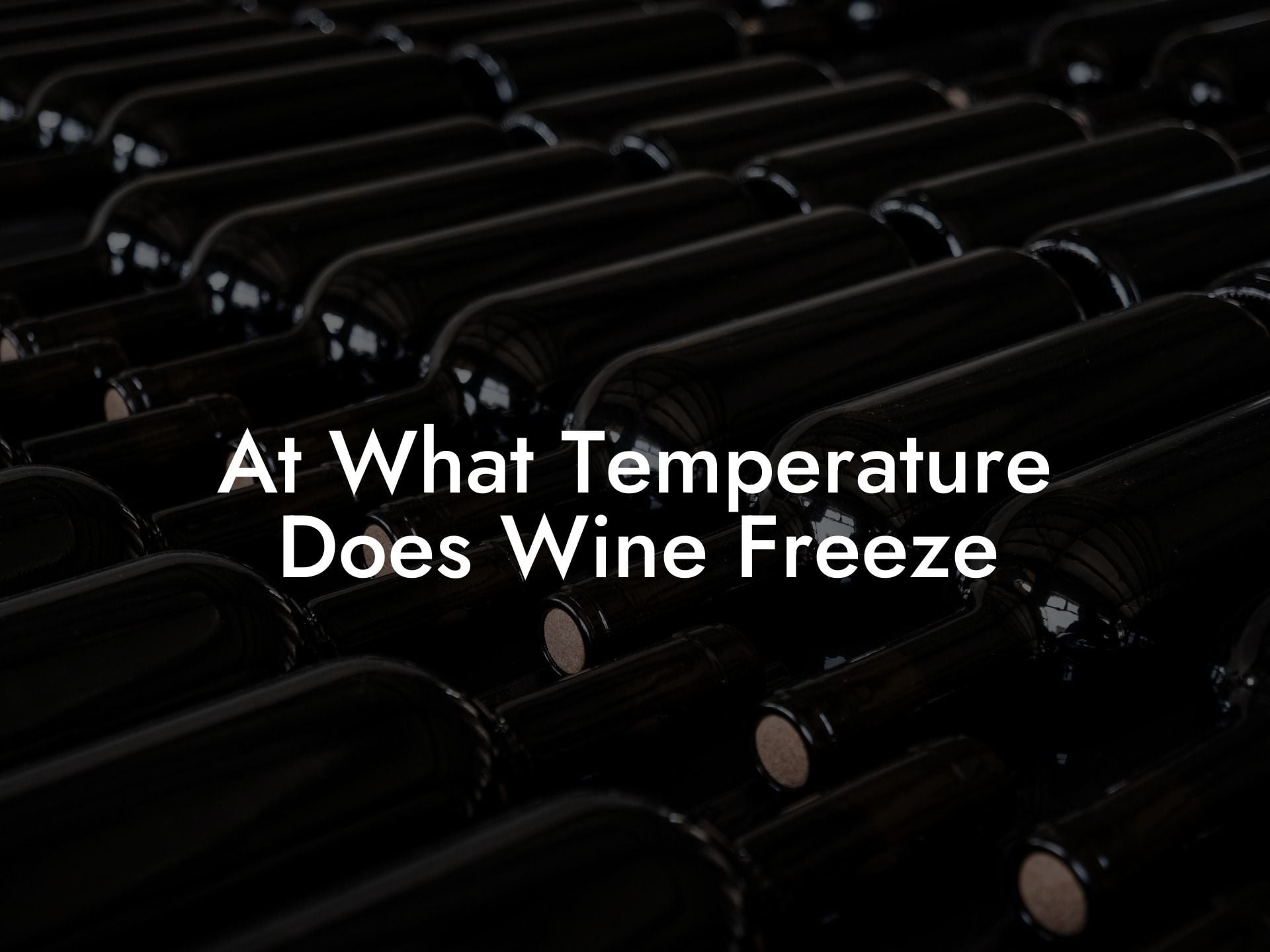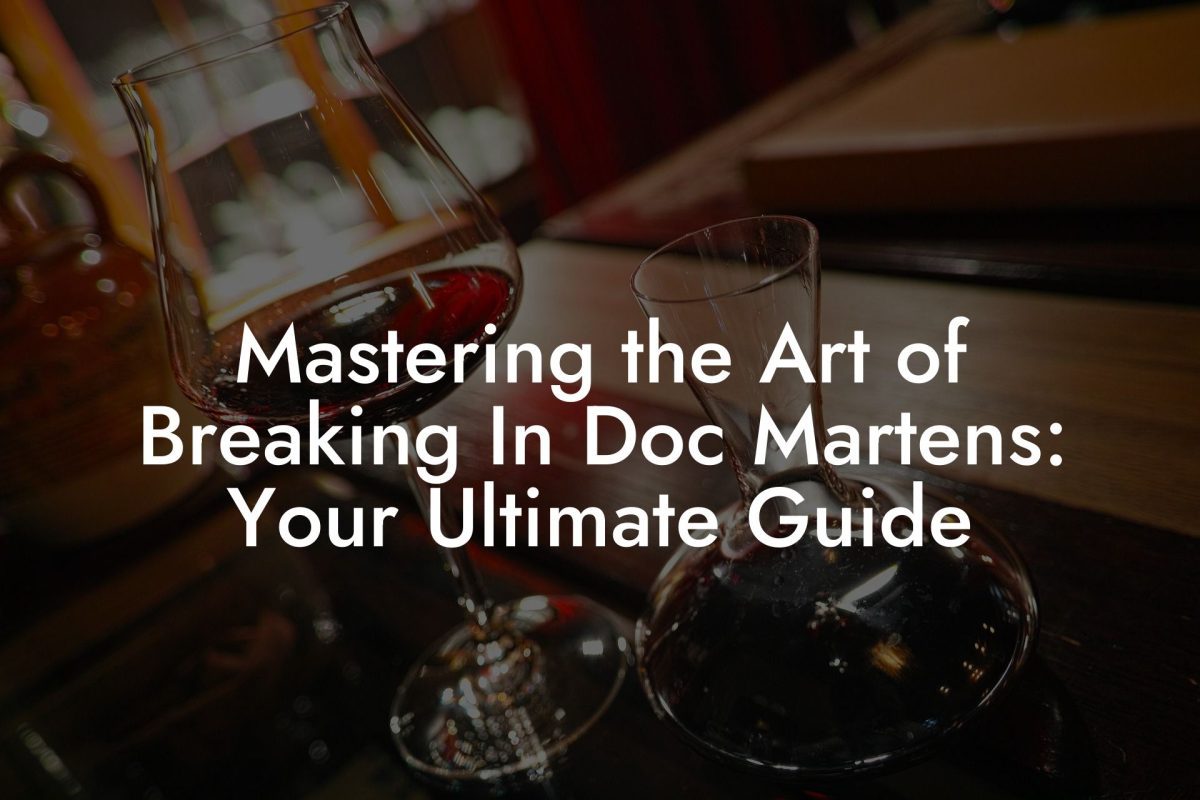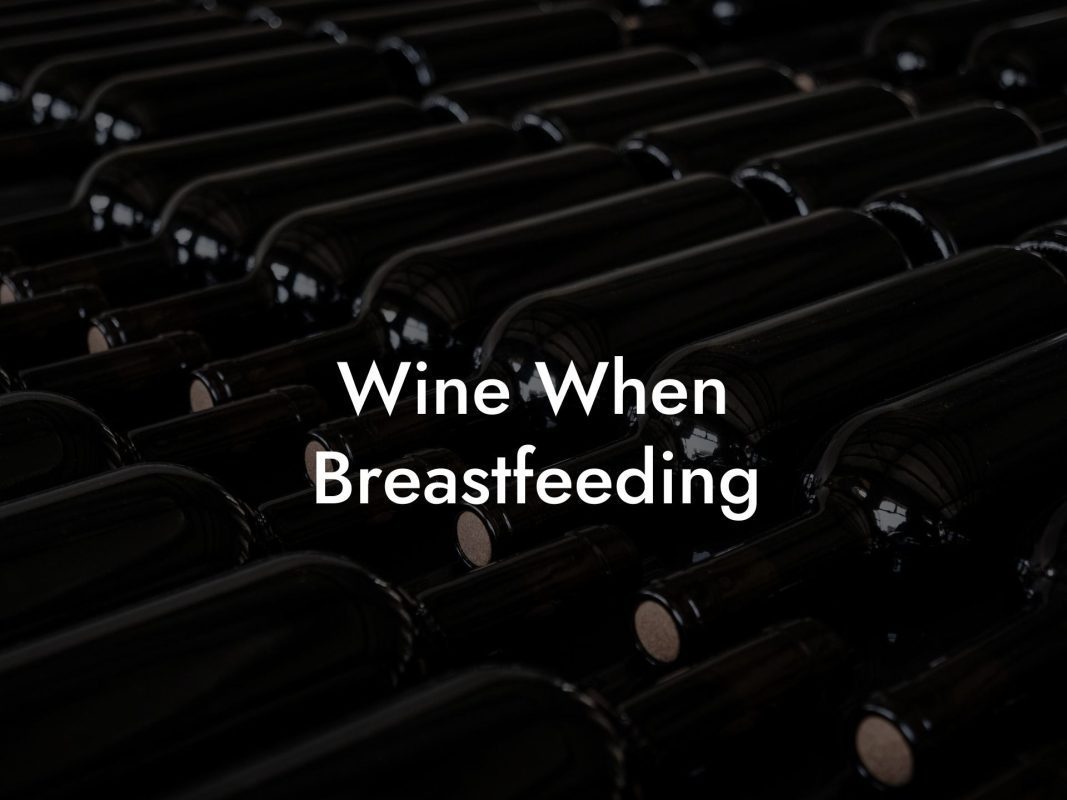Picture this: it's a chilly winter evening, and you've just come home from a hectic day at work. You reach for a bottle of your favorite wine to unwind, but it's been stored in the garage all this time. Upon opening it, you find that it has turned into a solid state. How did this happen? Well, wine can freeze if exposed to extremely low temperatures. But at what temperature does wine freeze exactly? Grab a glass of your (hopefully) liquid wine and let's dive into the science behind this wine lover's nightmare.
At What Temperature Does Wine Freeze Table of Contents
Why Wine Freezes
First things first, wine freezes because it contains water, which is affected by temperature. Water in its purest form freezes at 0°C (32°F). However, alcohol, which is also present in wine, has a much lower freezing point. This variance is what makes the freezing temperature of wine different from that of water.
The Freezing Point of Alcohol
Alcohol freezes at -114°C (-173°F). When combined with water, the freezing point of the mixture drops, forming a mixture that freezes between the freezing points of the two substances. The result is a freezing point that is somewhere between 0°C (32°F) and the freezing point of pure alcohol.
Do You Want to Win a Free Bottle of Wine?
Don't miss out on the opportunity to win a free bottle of wine every week.
Enter our weekly prize draw today!
Factors Impacting Wine's Freezing Temperature
Several factors determine the freezing temperature of a specific bottle of wine:
- Alcohol content: The higher the alcohol content, the lower the freezing point. Wines with higher alcohol content, such as a rich Cabernet Sauvignon, will freeze at a lower temperature than wines with lower alcohol content, like a delicate Riesling.
- Type of wine: Red and white wines have different sugar and alcohol levels, which affect their freezing points. Red wines generally have a lower freezing point than white wines due to their higher alcohol concentration.
- Sugar content: The presence of residual sugars in wine also lowers the freezing point. Sweeter wines, like some dessert wines, will have a slightly lower freezing point than drier wines.
The Average Freezing Temperature of Wine
Considering these factors, the freezing temperature of wine varies, usually in the range of -4°C to -9°C (20°F to 16°F). This means that, depending on its composition, wine can freeze at different temperatures.
At What Temperature Does Wine Freeze Example:
Let's say you have a bottle of Pinot Noir with an alcohol content of 13.5% and a cabernet sauvignon with an alcohol content of 14.5%. Both these wines have been stored in your unheated garage during an unusually cold winter. The average freezing temperature of a red wine is about -6°C (21°F), so if the temperature outside reaches this point, the Pinot Noir might freeze, causing the cork to be pushed out or the bottle even to crack. The Cabernet Sauvignon, with its higher alcohol content, may stay liquid but might not taste as it should due to exposure to such low temperatures.
Now you know the freezing point of your favorite grape nectar, so make sure to keep your wine bottles stored at appropriate temperatures to avoid any wine disasters. With this knowledge in hand, you're one step closer to being a wine connoisseur. Don't forget to stay tuned in to Black Wine Club for more wine-related guides, tips, and articles just like this.
Feel free to share this article with your fellow wine enthusiasts and make sure to explore other guides on Black Wine Club. Cheers!
Do You Want to Win a Free Bottle of Wine?
Don't miss out on the opportunity to win a free bottle of wine every week.
Enter our weekly prize draw today!












